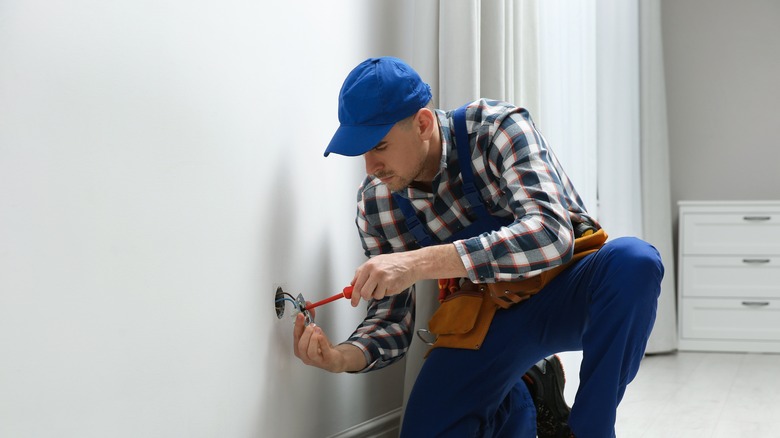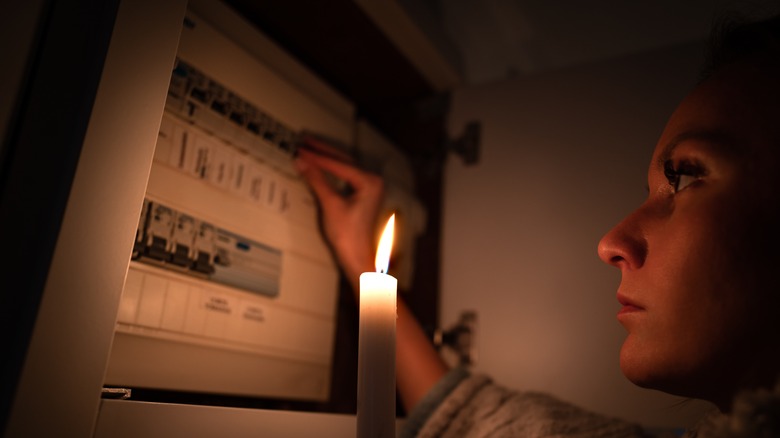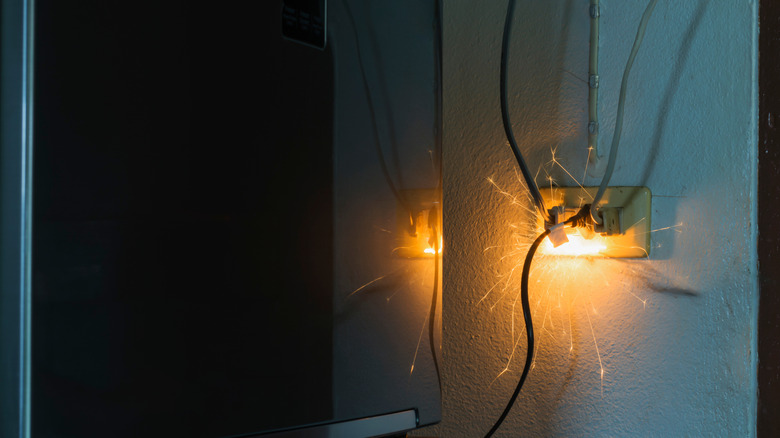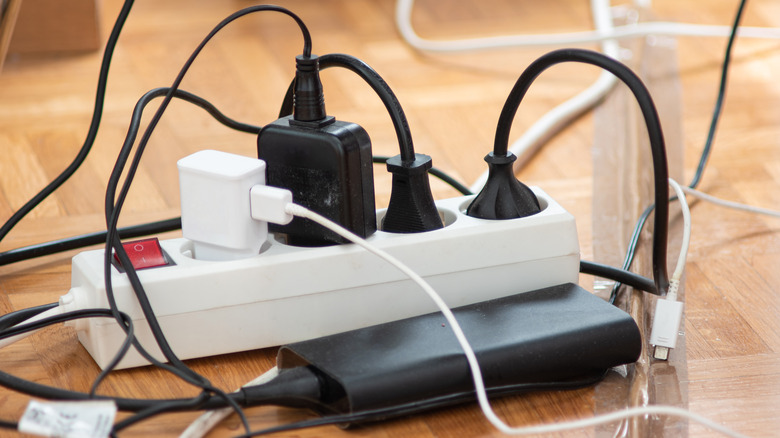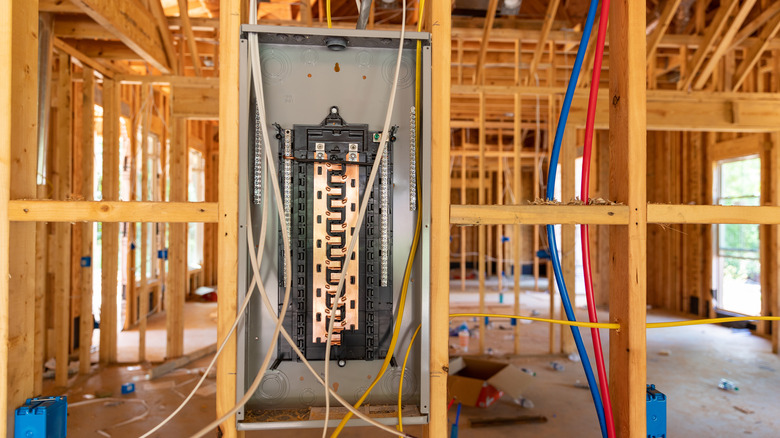Signs You Need To Call An Electrician, According To An Expert
Electricity is so essential to modern life that when it fails, it creates a big impact — from putting food at risk of spoilage to making it harder to keep cool on a hot day. Dealing with electricity is dangerous, though, with an estimated 1,000 people dying every year from some type of electrical injury and more than 30,000 others suffering shocks that aren't fatal, as noted in a study reported by the National Library of Medicine. You can handle some minor DIY electrical tasks yourself, but others are best suited for professionals. If you don't have any electrical experience or knowledge, it's always best to turn to a licensed electrician, even for those minor tasks.
So, how do you know when to call? In an exclusive interview with House Digest, Dylan Esterling, the owner of Randercom Communications & Security Solutions, points out instances where you should be bringing in a licensed technician for the work.
Flickering lights and faulty switches
It's common for large-scale power outages to happen in many areas, often due to lightning striking electrical poles and transformers. But how do you know if your home is the problem? "One of the most obvious signs that you need to call an electrician is if you experience frequent power outages or flickering lights and your neighbors don't. This can be a sign of a problem with the electrical wiring or a faulty circuit breaker in your home," Dylan Esterling notes.
It's also a good idea to be observant of changes in your electrical system throughout your home, even performing a routine inspection of your outlets, as Esterling notes some signs that could require help. "If you notice that your outlets or switches are becoming warm or discolored, then this could indicate an overloaded circuit or a faulty outlet, which can be a fire hazard. An electrician will be able to replace or repair the outlet or switch and resolve any potential issues." Being diligent with minor changes can save you from dealing with bigger issues (and hazards) down the line.
Smells, sparks, and old wiring
Sometimes, malfunctions in your cables and outlets are obvious — and require quick action. Esterling says, "If you come across a burning smell or see sparks coming from an outlet in your home, then you should call an electrician right away. This could mean a major electrical issue that presents a fire risk." In this case, steer clear of the area. If the issue worsens, an emergency service call may be in order.
Whether you just moved in or you haven't had any type of electrical issues before, the age of your wiring can matter as well, reveals Esterling. "Another sign to be aware of is if you have old wiring in your home. Old wiring can be a fire hazard and can be a danger to your home and family. An electrician can update your wiring to ensure your home is safe and up to code." Don't wait for a problem to take action, though. State Farm recommends considering a whole-home electrical wiring check if it's more than 40 years old.
Insufficient outlets or tripped circuits
With so much digital and electronic equipment in homes today, it's easy to find yourself without enough power sources. Dylan Esterling shares, "If you notice that your home has an insufficient number of outlets or you have to use extension cords and power stripes frequently, it may be a sign that you need to call an electrician. This can indicate that your electrical system is not sufficient to handle the demands of your household." It's not a good idea to just continue to pull power from outlets as that can overload them, creating a fire risk and a much more expensive repair bill.
You'll also need to call an electrician if your home's trying to tell you it needs more power. "If your circuit breaker keeps tripping, this could be due to a circuit overload or some kind of wiring issue. An electrician can investigate the cause and make the necessary repairs to avoid any further issues," Esterling says. Here, it's not a good idea to just keep flipping the breaker back without determining why it continues to happen.
What to do before renovating
Some scenarios call for professional help, even when everything is in working order. "If you're about to undertake any renovations in your home, it's important to call in an electrician for assistance. They can help you plan the electrical aspects of your project and make sure that your home's wiring meets all safety regulations — and can handle any increased load from the work," Esterling says.
This includes any type of home renovation, but those with significant power upgrades should always involve a professional. Some examples may include upgrading to a bathtub with water jets, adding a hot tub to the backyard, upgrading your home's media and TV to high-end, high-power items, or moving appliances. The electrician may also give you advice on how to minimize your energy use and offer insight into ensuring your existing electrical system can handle your upgrade needs. Sometimes, an added electrical box or some rewiring is necessary to keep your home safe.
